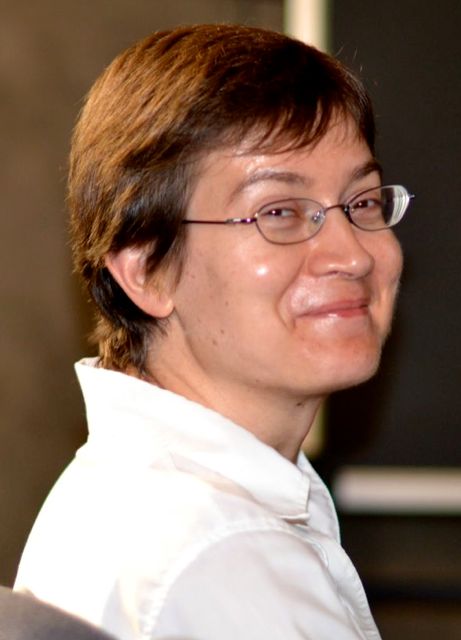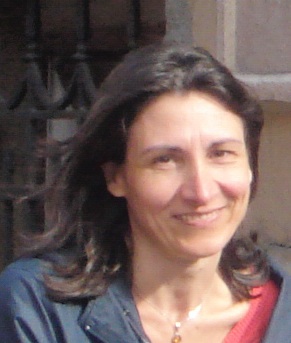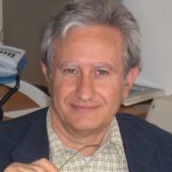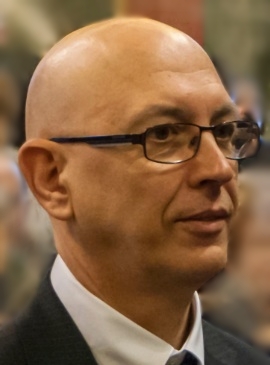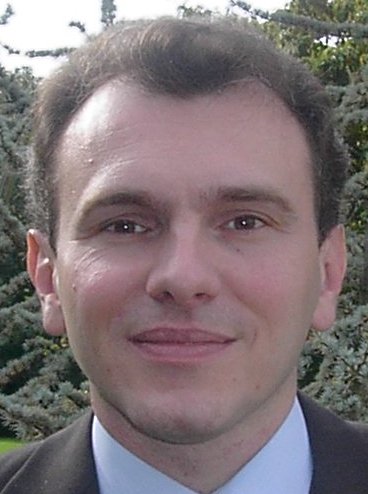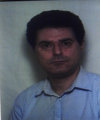Studiare
In questa sezione è possibile reperire le informazioni riguardanti l'organizzazione pratica del corso, lo svolgimento delle attività didattiche, le opportunità formative e i contatti utili durante tutto il percorso di studi, fino al conseguimento del titolo finale.
Calendario accademico
Il calendario accademico riporta le scadenze, gli adempimenti e i periodi rilevanti per la componente studentesca, personale docente e personale dell'Università. Sono inoltre indicate le festività e le chiusure ufficiali dell'Ateneo.
L’anno accademico inizia il 1° ottobre e termina il 30 settembre dell'anno successivo.
Calendario didattico
Il calendario didattico indica i periodi di svolgimento delle attività formative, di sessioni d'esami, di laurea e di chiusura per le festività.
| Periodo | Dal | Al |
|---|---|---|
| 1° Q - 2° anno e successivi | 29-set-2003 | 28-nov-2003 |
| 2° Q | 12-gen-2004 | 12-mar-2004 |
| 3° Q | 5-apr-2004 | 11-giu-2004 |
| Sessione | Dal | Al |
|---|---|---|
| Sessione straordinaria | 17-dic-2003 | 17-dic-2003 |
| Sessione invernale | 17-mar-2004 | 17-mar-2004 |
| Sessione estiva | 22-lug-2004 | 22-lug-2004 |
| Sessione autunnale | 22-set-2004 | 22-set-2004 |
| Periodo | Dal | Al |
|---|---|---|
| Festa di tutti i santi | 1-nov-2003 | 1-nov-2003 |
| Vacanze natalizie | 22-dic-2003 | 6-gen-2004 |
| Vacanze Pasquali | 8-apr-2004 | 13-apr-2004 |
| Festa del Patrono S. Zeno | 12-apr-2004 | 12-apr-2004 |
| Festa del lavoro | 1-mag-2004 | 1-mag-2004 |
| Festa della Repubblica | 2-giu-2004 | 2-giu-2004 |
| Vacanze estive | 26-lug-2004 | 31-ago-2004 |
Calendario esami
Gli appelli d'esame sono gestiti dalla Unità Operativa Segreteria Corsi di Studio Scienze e Ingegneria.
Per consultazione e iscrizione agli appelli d'esame visita il sistema ESSE3.
Per problemi inerenti allo smarrimento della password di accesso ai servizi on-line si prega di rivolgersi al supporto informatico della Scuola o al servizio recupero credenziali
Docenti
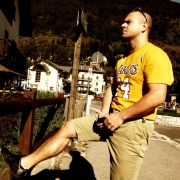
Squassina Marco
 marco.squassina@univr.it
marco.squassina@univr.it
 +39 045 802 7913
+39 045 802 7913
 luca.vigano@univr.it
luca.vigano@univr.it
Piano Didattico
Il piano didattico è l'elenco degli insegnamenti e delle altre attività formative che devono essere sostenute nel corso della propria carriera universitaria.
Selezionare il piano didattico in base all'anno accademico di iscrizione.
2° Anno Attivato nell'A.A. 2004/2005
| Insegnamenti | Crediti | TAF | SSD |
|---|
4° Anno Attivato nell'A.A. 2006/2007
| Insegnamenti | Crediti | TAF | SSD |
|---|
5° Anno Attivato nell'A.A. 2007/2008
| Insegnamenti | Crediti | TAF | SSD |
|---|
| Insegnamenti | Crediti | TAF | SSD |
|---|
| Insegnamenti | Crediti | TAF | SSD |
|---|
| Insegnamenti | Crediti | TAF | SSD |
|---|
| Insegnamenti | Crediti | TAF | SSD |
|---|
| Insegnamenti | Crediti | TAF | SSD |
|---|
Legenda | Tipo Attività Formativa (TAF)
TAF (Tipologia Attività Formativa) Tutti gli insegnamenti e le attività sono classificate in diversi tipi di attività formativa, indicati da una lettera.
Sicurezza e crittografia (2007/2008)
Codice insegnamento
4S00060
Docente
Crediti
5
Offerto anche nei corsi:
- Sicurezza e crittografia del corso Laurea specialistica in Sistemi intelligenti e multimediali
Lingua di erogazione
Italiano
Settore Scientifico Disciplinare (SSD)
INF/01 - INFORMATICA
Periodo
1° Q dal 3-ott-2007 al 4-dic-2007.
Obiettivi formativi
Nel corso vengono esaminati i concetti di base per lo studio della sicurezza dei sistemi e delle transazioni telematiche. Viene data particolare enfasi all'aspetto definizionale del problema, all'aspetto della criptazione dei dati, e al modo di affrontare la letteratura esistente. Al termine del corso lo studente ha acquisito maggior sensibilità alle problematice di sicurezza in rete ed è in gado di cercare e valutare autonomamente soluzioni ad eventuali problemi di sicurezza.
Programma
Elementi di teoria dei numeri: Gruppi Zn e Zn*, gruppi ciclici, generatori, logaritmo discreto, residuo quadratico, simboli di Legendre e Jacobi.
Crittografia: storia della crittografia, crittografia a chiave simmetrica (DES, IDEA), crittografia a chiave pubblica (Diffie-Helman, RSA, Bloom-Goldwasser), tecniche dimostrabilmente sicure per la codifica di un singolo bit e di sequenze di bit, tecniche per il lancio di una moneta in rete, lancio di moneta nel pozzo, generazione di bit pseudo-casuali (Bloom-Bloom-Shoub), generazione di funzioni pseudo-casuali.
Protocolli: firma digitale, autenticazione di messaggi, bit committment, schemi a barriera, blind signature, comunicazione non tracciabile, protocolli zero-knowledge, denaro digitale, voto digitale, autenticazione di agenti, distribuzione di chiavi, certificazione di chiavi.
Sicurezza dei sistemi: Elementi e criteri generali di sicurezza, attacchi ai sistemi e difese, virus, vermi, firewall.
PIANO DELLE LEZIONI
Lezione 1: Introduzione al corso, Definizione della materia, Storia della Crittografia, Dal codice di Cesare a DES, IDEA.
Lezione 2: Elementi di Teoria dei Numeri, Gruppi Zn, Zn*, Generatori, Logaritmo discreto.
Lezione 3: Elementi di teoria dei numeri, Residuo quadratico, Simbolo di Legendre, Simbolo di Jacobi, Esempio di riduzione da radice quadrata a fattorizzazione.
Lezione 4: Crittografia a chiave pubblica, Diffie-Helman, RSA.
Lezione 5: Codifica di un singolo bit.
Lezione 6: Codifica di sequenze di bit.
Lezione 7: Lancio di monete.
Lezione 8: Lancio di monete.
Lezione 9: Generazione di bit pseudo casuali.
Lezione 10: Generazione di funzioni pseudo casuali.
Lezione 11: Firme digitali, Autenticazione di messaggi.
Lezione 12: Bit committment, Schemi a barriera, Blind signatures, Comunicazioni non tracciabili.
Lezione 13: Zero knowledge.
Lezione 14: Zero Knowledge.
Lezione 15: Contanti elettronici.
Lezione 16: Voto elettronico.
Il corso viene svolto in 40 ore di lezione frontale. Le lezioni sono svolte mantenendo un livello scientifico elevato. Buona parte dei risultati vengono dimostrati formalmente. Lo studente non è tenuto a comprendere tutti i dettagli del lavoro svolto; tuttavia lo studente è tenuto a cogliere le similarità che sussistono tra le diverse tipologie di problema e i diversi modi di affrontare un problema. E' questo l'elemento fondamentale che permette allo studente di leggere autonomamente la letteratura esistente.
Modalità d'esame
L'esame consiste di una prova orale sugli argomenti del corso. Durante la prova orale non vengono chieste dimostrazioni o definizioni formali. Lo studente deve comunque saper commentare eventuali definizioni e/o dimostrazioni che vengono proposte dal docente.
Tipologia di Attività formativa D e F
Documenti e avvisi
-
 Documento ufficiale
(pdf, it, 21 KB, 25/06/03)
Documento ufficiale
(pdf, it, 21 KB, 25/06/03)
Insegnamenti non ancora inseriti
Prospettive
Avvisi degli insegnamenti e del corso di studio
Per la comunità studentesca
Se sei già iscritta/o a un corso di studio, puoi consultare tutti gli avvisi relativi al tuo corso di studi nella tua area riservata MyUnivr.
In questo portale potrai visualizzare informazioni, risorse e servizi utili che riguardano la tua carriera universitaria (libretto online, gestione della carriera Esse3, corsi e-learning, email istituzionale, modulistica di segreteria, procedure amministrative, ecc.).
Entra in MyUnivr con le tue credenziali GIA: solo così potrai ricevere notifica di tutti gli avvisi dei tuoi docenti e della tua segreteria via mail e a breve anche tramite l'app Univr.

